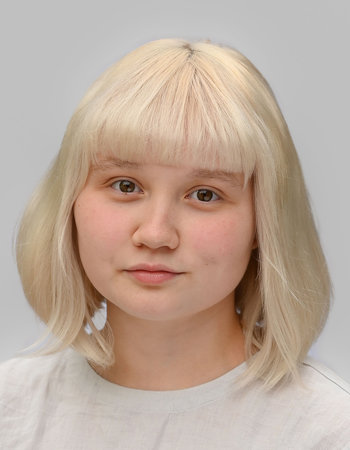
Iuliia (Yulia) M. Nurislamova
Doctoral Candidate
Academic education
since 2021 Doctoral candidate, Max Planck School of Cognition, Leipzig, Germany
Doctoral research performed at Forschungszentrum Jülich and Heinrich-Heine-Universität Düsseldorf
Supervisors: Simon Eickhoff & Susanne Weis
Lab rotations in the orientation phase: Jürgen Jost, Pascal Fries and Rosanne Rademaker
2021 Master of Psychology, Higher School of Economics (HSE), Moscow, Russia
2019 Bachelor in Psychology, Higher School of Economics, Moscow, Russia
Research experience
2018—2021 Junior Research Fellow, Centre for Bioelectric Interfaces (Prof. Alexey Ossadtchi), Institute for Cognitive Neuroscience, HSE University, Moscow, Russia
2016—2019 Research assistance, Cognitive Psychophysiology Laboratory (Prof. Vsevolod L. Chernyshev), School of Psychology, Faculty of Social Sciences, HSE University, Moscow, Russia
Teaching
2020–2021 Teaching assistance, School of Psychology, Faculty of Social Sciences, HSE University, Moscow, Russia
Publications
Kuznetsova, A., Nurislamova, Y., & Ossadtchi, A. (2021). Modified covariance beamformer for solving MEG inverse problem in the environment with correlated sources. NeuroImage, 228, 117677. https://doi.org/10.1016/j.neuroimage.2020.117677
Nurislamova, Y. M., Novikov, N. A., Zhozhikashvili, N. A., & Chernyshev, B. V. (2019). Enhanced theta-band coherence between midfrontal and posterior parietal areas reflects post-feedback adjustments in the state of outcome uncertainty. Frontiers in Integrative Neuroscience, 13, 14. https://doi.org/10.3389/fnint.2019.00014
Novikov, N. A., Nurislamova, Y. M., Zhozhikashvili, N. A., Kalenkovich, E. E., Lapina, A. A., & Chernyshev, B. V. (2017). Slow and fast responses: Two mechanisms of trial outcome processing revealed by EEG oscillations. Frontiers in Human Neuroscience, 11, 218. https://doi.org/10.3389/fnhum.2017.00218
Photo: Anja Schneider